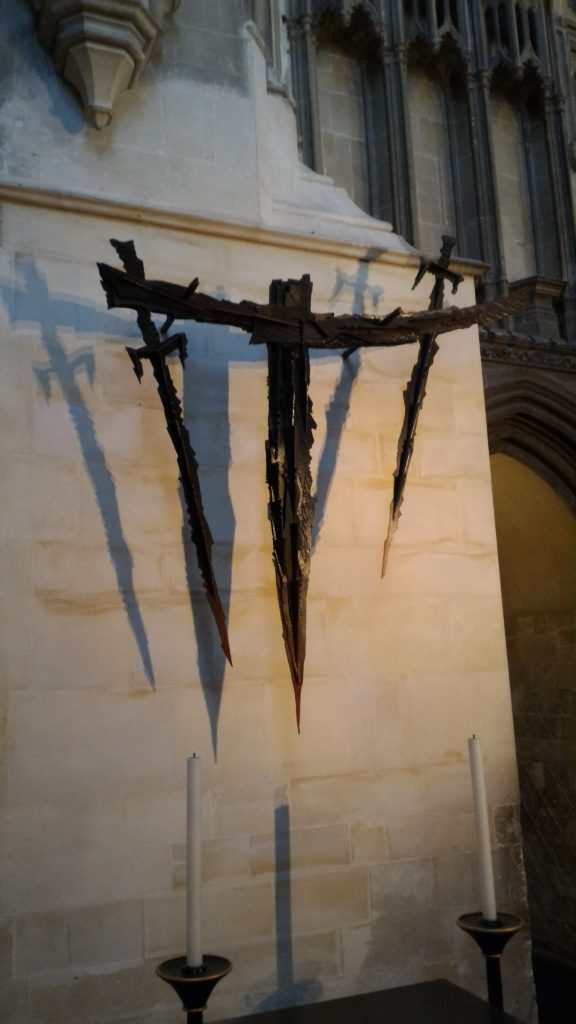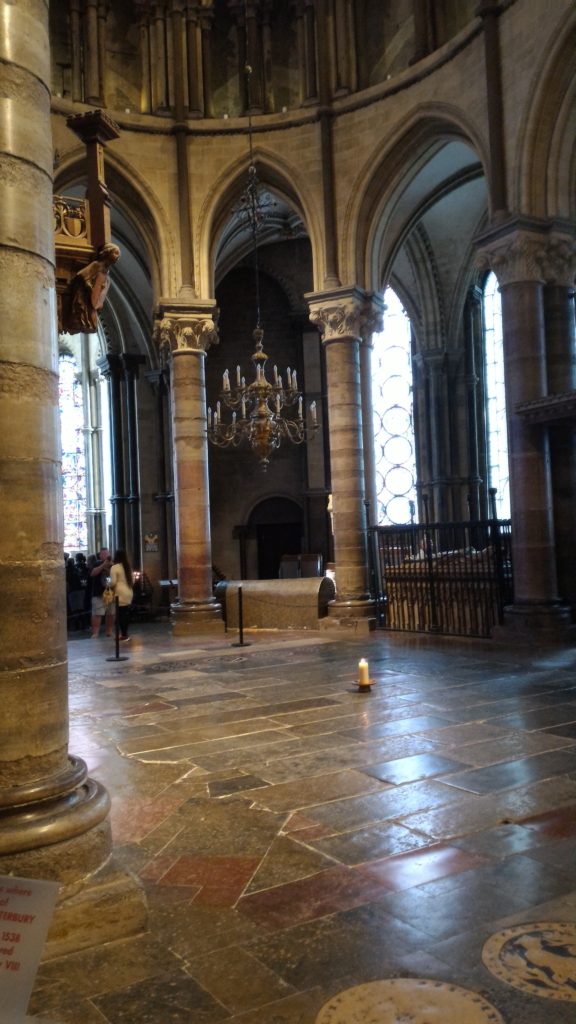Saint John, Apostle, Evangelist
1 John 1:1-4 | Psalm 96(97):1-2,5-6,11-12 | John 20:2-8
It’s a near-future Olympics, and Usain “Lightning” Bolt is out on the track, a picture of calm in the midst of his nervous competitors, all wondering what it would take to overtake the Fastest Man Alive.
The race begins with Bolt characteristically falling behind his competitors before unleashing his prodigious leg muscles and passing the others one by one. As he nears the finish line, everyone in the stadium stands, cheers and applauds.
Suddenly, just one long stride from the end, Bolt stops dead in his tracks. The entire stadium gasps.
His closest competitor rapidly closes the gap then, mouth agape, turns his head to goggle at the stationary world champion, tripping himself in the process and literally flying over the finish line.
The other six runners do the same, and the medical teams run out onto the track to render assistance, while the sideline reporters sprint to the waiting Bolt. Everyone in the stadium is yelling the same question: “Why did you stop?”
Bolt turns to the waiting cameras and, flashing his trademark grin, says:
I didn’t need to win, but everyone else needed hope.
✞ ✞ ✞ ✞ ✞
I’m sure a similar question has been asked over and over about today’s Gospel passage: Why did John not enter Jesus’ tomb when he reached it first? Many explanations have been offered over the years, from John’s deferring to Peter’s seniority as the first among equals, to John mistakenly believing that Jesus’ body was still among the linen cloths lying on the ground.
I’d like to offer my own speculation: John deliberately stopped to give Peter renewed hope and confidence in himself.
We all know the story of Peter’s misplaced, almost arrogant confidence, of claiming in front of the other disciples: “Though all lose faith in you, I will never lose faith.” (Matthew 26:33)
We also know what happened after: Jesus basically said “oh yes you will, and three times too”. That prophecy came to pass via a noisy rooster, and we all picture a devastated Peter weeping bitterly at this point, unsure of himself and of everything he professed.
Fast-forward to Mary of Magdala’s surprise announcement: Christ has disappeared from His tomb! It’s more than enough to get Peter and John running to investigate, but Peter soon falls behind, unable to keep up with the younger disciple, and perhaps slowed by recalling his own betrayal of the Messiah. At this point, perhaps he’s thinking: “Why am I doing this? I walked away from Jesus in His darkest hour; why would He accept anything else from me?”
Now John has reached the tomb, and seen the burial cloths. He’s about to set foot in the tomb, when he looks back and sees Peter struggling with himself some distance away, and remembers that tragic cock-crowing scene at the high priest’s house. On a Spirit-filled impulse, he decides instead to wait until Peter is close, then starts frantically waving and pointing to the tomb in a silent message: Peter, quick! Something’s happening here!
Peter sees John’s obvious excitement, which gives him renewed energy. Sprinting forward, he surges past and skids straight into the tomb…and a bombshell of a revelation: Oh dear God, it’s true! It’s ALL true!
John, noticing a sea change light up Peter’s face, now enters the tomb to see…and believe.
✞ ✞ ✞ ✞ ✞
It might not have happened that way, but we’ve all heard stories of athletes stopping to help the fallen, while watching their commanding lead evaporate into last place as the other competitors run past.
It might not have happened that way, but I believe many of us would like it to be true, that St. John chose giving hope to a fallen comrade over winning a meaningless race.
It might not have happened that way, but if it hadn’t, would the nascent Church have survived a spiritually-broken St. Peter?
For that matter, have we ourselves surged forward to grasp some life-prize (free goodies, a coveted promotion, a gorgeous girlfriend) and walked away proud and exultant, oblivious to the people who tripped and fell in that same quest?
Were we in fact responsible for tripping them, through some carelessness or dirty tricks of our own?
✞ ✞ ✞ ✞ ✞
We have already won the prize of eternal life, but everyone else still needs hope.
Mindful of this, let us consciously live some of St. Paul’s last words to Timothy, but with a Spirit-filled twist:
I have helped others fight the good fight to the end;
I have helped others run the race to the finish;
I have helped others keep the faith
(2 Timothy 4:7, with adjustments)
Amen.

